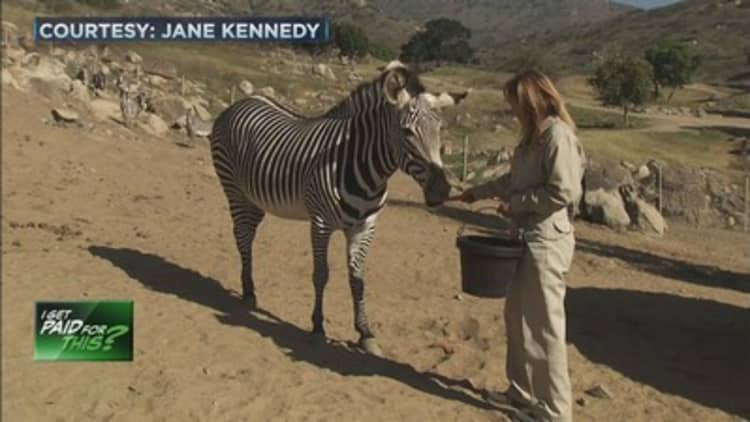
Jane Kennedy's office is full of exotic creatures. As a lead zookeeper at the San Diego Zoo Safari Park, she takes care of 359 animals every day.
She's worked with tigers, baby elephants, koalas and rhinoceros. "The key is remembering what you're working with and taking the proper precautions," Kennedy said in an interview with CNBC's "Power Lunch."
For example, an adult rhino can weigh up to 5,000 pounds.
"We drive trucks when we're out in the field around them with protocols where you don't get out of the truck if there's a rhino right there. You might jump in the back of the truck and feed the rhino from the back of the truck so you can get a really good look at them and see how they're doing for their health for the day," she said.
While Kennedy has been working at the park for 32 years, she is still surprised on a daily basis.
"Every day is different; you never know what you're going to find in the morning. When you get out there you might find a baby animal that's just been born, you might find somebody that's hurt, you may not be able to find an animal at all and one of the biggest responsibilities as keepers is we find every animal every day," she said.
It is her work with rhinos that has given her the greatest satisfaction. "The park has the most successful breeding program in the world for captive rhinoceros," Kennedy noted.
"We've had 176 rhinos born there. I've been able to see 12 rhinos born, all different kinds over my career and that's something I'm really proud of."
Her love for the animal has also taken her around the world. In addition to her zookeeper job, she's the president of the International Rhino Keeper Association. It was at one of the association's conferences where she learned about the treatment of a disease that one of her black rhinos was suffering from.
"I learned what they did in England to medicate their rhino with the same disease. I brought that information back home to the U.S. and it has been shared across the U.S. now to help all black rhinos," she said smiling.


